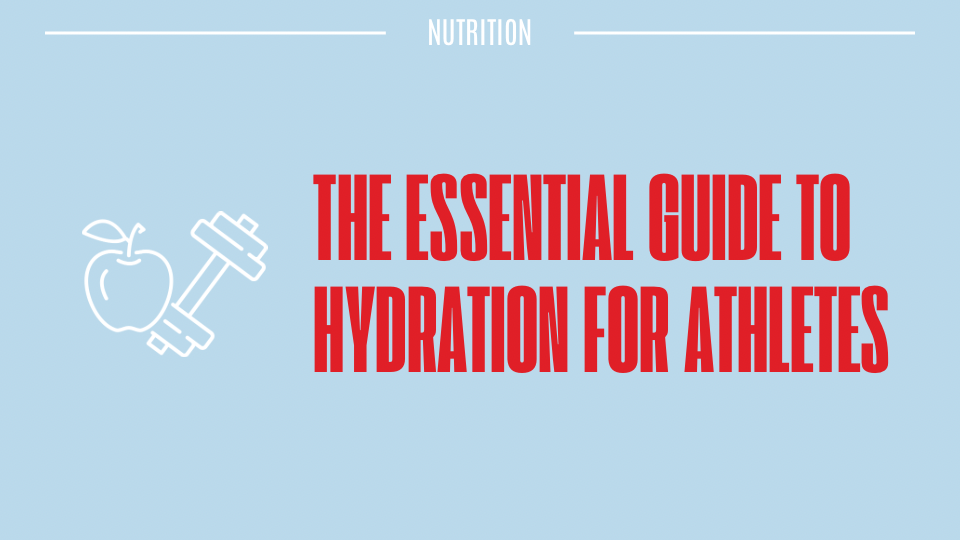When it comes to athletic performance, we often focus on training, equipment, and nutrition—but hydration is equally important. Proper hydration can be the difference between personal bests and missed opportunities, and it’s key to maintaining optimal performance.
This guide explores the science behind hydration, the critical role of electrolytes, and practical strategies to keep your performance at its peak. So, let’s break it down.
Very simply, when you sweat, you’re losing both water and electrolytes. Which means we need to rehydrate well.
What are electrolytes?
Electrolytes are minerals found in foods that support essential processes in the body.
There are 7 key electrolytes: Sodium, Potassium, Chloride, Magnesium, Calcium, Phosphate, and Bicarbonate. Each is incredibly important for performance. Here are a few examples:
- Potassium supports muscle function.
- Magnesium helps with recovery.
- Calcium is needed for strong bones.
When we don’t replace lost fluids and electrolytes, we become dehydrated. Even slight dehydration can cause negative symptoms like:
- Slower reaction times
- Muscle cramps
- Brain fog or dizziness
- Early fatigue
(And as athletes, we don’t want any of these things to happen)
Your body is made up of roughly 60% water, and every single cell depends on it to function well. That includes your muscles, joints, and brain – everything you need to compete at your best.
There was a fascinating study on dehydration and basketball performance – specifically how even small levels of dehydration impacted accuracy. The results stated that, “Performance during all timed and shooting drills declined progressively as % dehydration increased.” So, next time you think hydration doesn’t matter, think again.
Check out this table for a quick reference:
% Dehydration by Body Weight and Shots Missed
| 1% | 5 |
| 2% | 6 |
| 3% | 8 |
| 4% | 10 |
How to Hydrate Well
There are many things you can do to hydrate well including: making sure you’re drinking enough water, timing your hydration right, and replenishing electrolytes lost through sweat during training and games.
Getting Enough Fluids
As a baseline, aim to drink at least half your body weight in ounces of water daily. When you’re sweating or training intensely, especially during hot summer months, your fluid needs will increase even further.
Timing Your Hydration
Good hydration isn’t about chugging water right before training or a game. It starts days in advance and continues beyond the training session. Drinking moderate amounts consistently throughout the day is more effective than consuming large amounts at once.
Replenishing Electrolytes
Along with water, make sure to replenish electrolytes – especially if you’re sweating a lot. Think of electrolytes as the transporter for water to get into the cell. This is where we want the water going!
Electrolytes can come from whole foods or, for quicker recovery, from electrolyte packets like these Hydration Liquid Formulas from Protekt.
For athletes, choose an electrolyte packet that contains minimal ingredients and has three key electrolytes:
- Sodium
- Potassium
- Magnesium
Remember, if you want to perform like a top athlete, you’ve got to hydrate like one too. By understanding the important role of both water and electrolytes and hydration’s impact on performance, and maintaining proper hydration by implementing these strategies, you’ll maintain a competitive edge that many athletes overlook. Stay hydrated!
About the Author
As a Certified Nutrition Coach, Julianna Quiring helps athletes optimize their performance through proper nutrition. Drawing from her experience as a Performance Nutrition Intern at Iowa State Athletics and nutrition coach at Life Time Fitness, she creates personalized strategies that enhance athletic achievement. Her goal is to guide and inspire athletes to make informed nutritional choices that support their success both on and off the court.
Disclosure: This article contains affiliate links that pay a commission to us when you choose to make a purchase. It also saves you money on your purchase.
